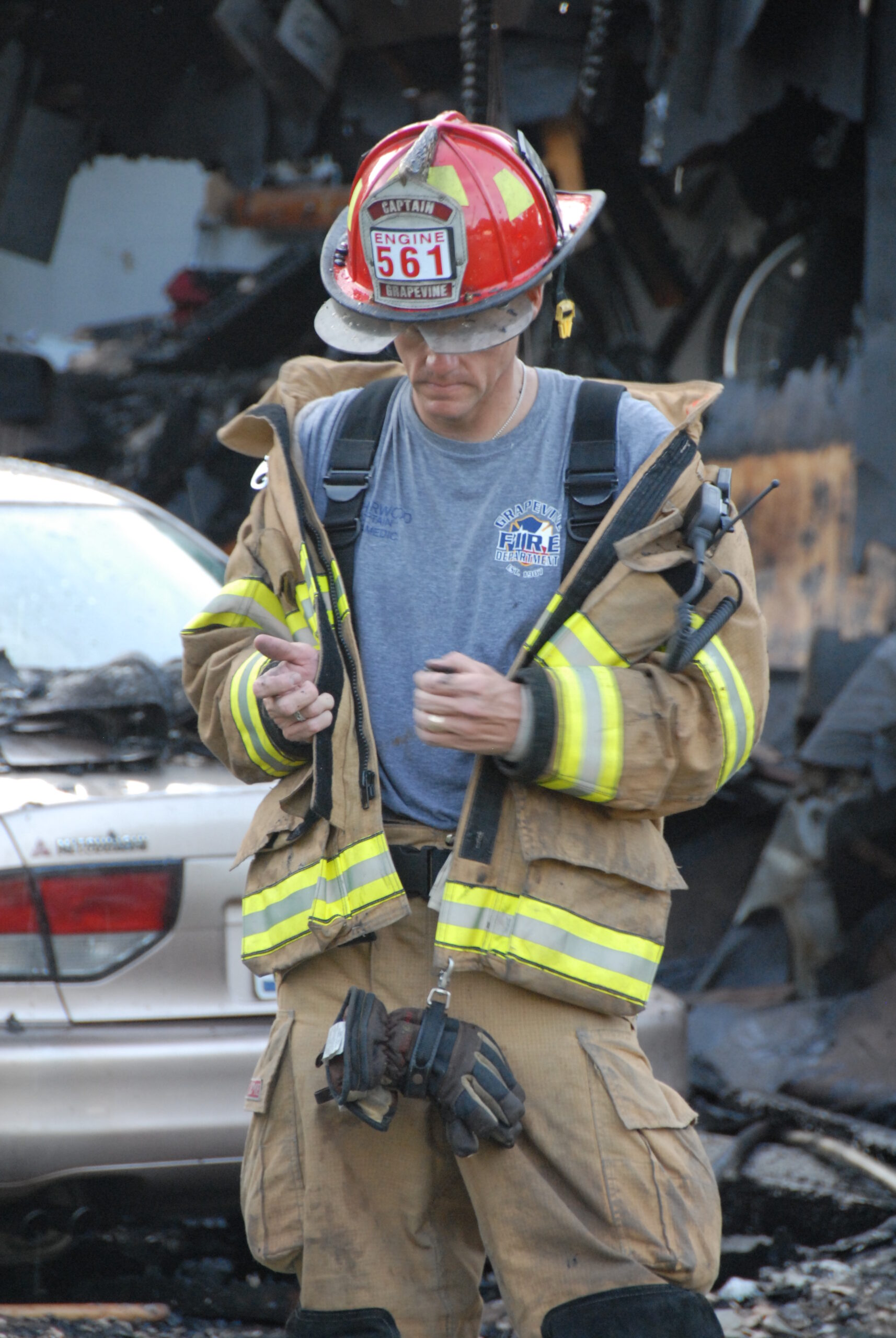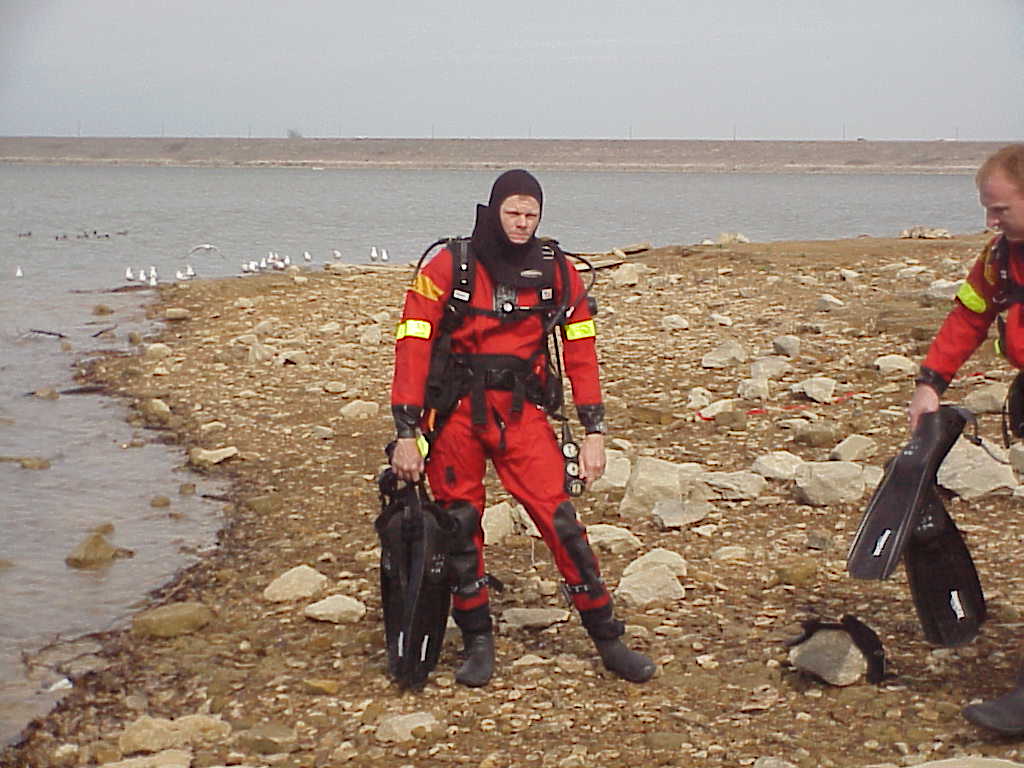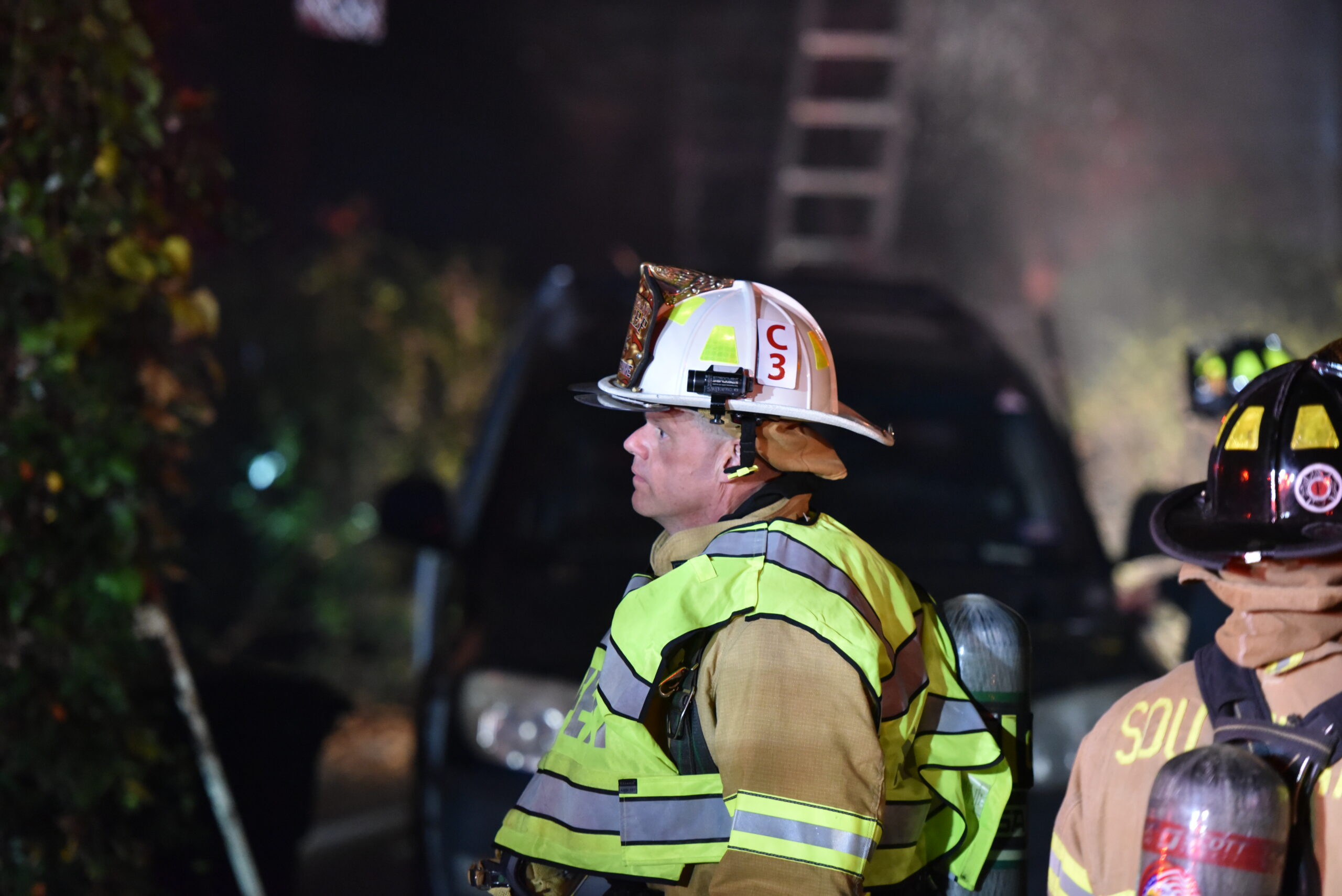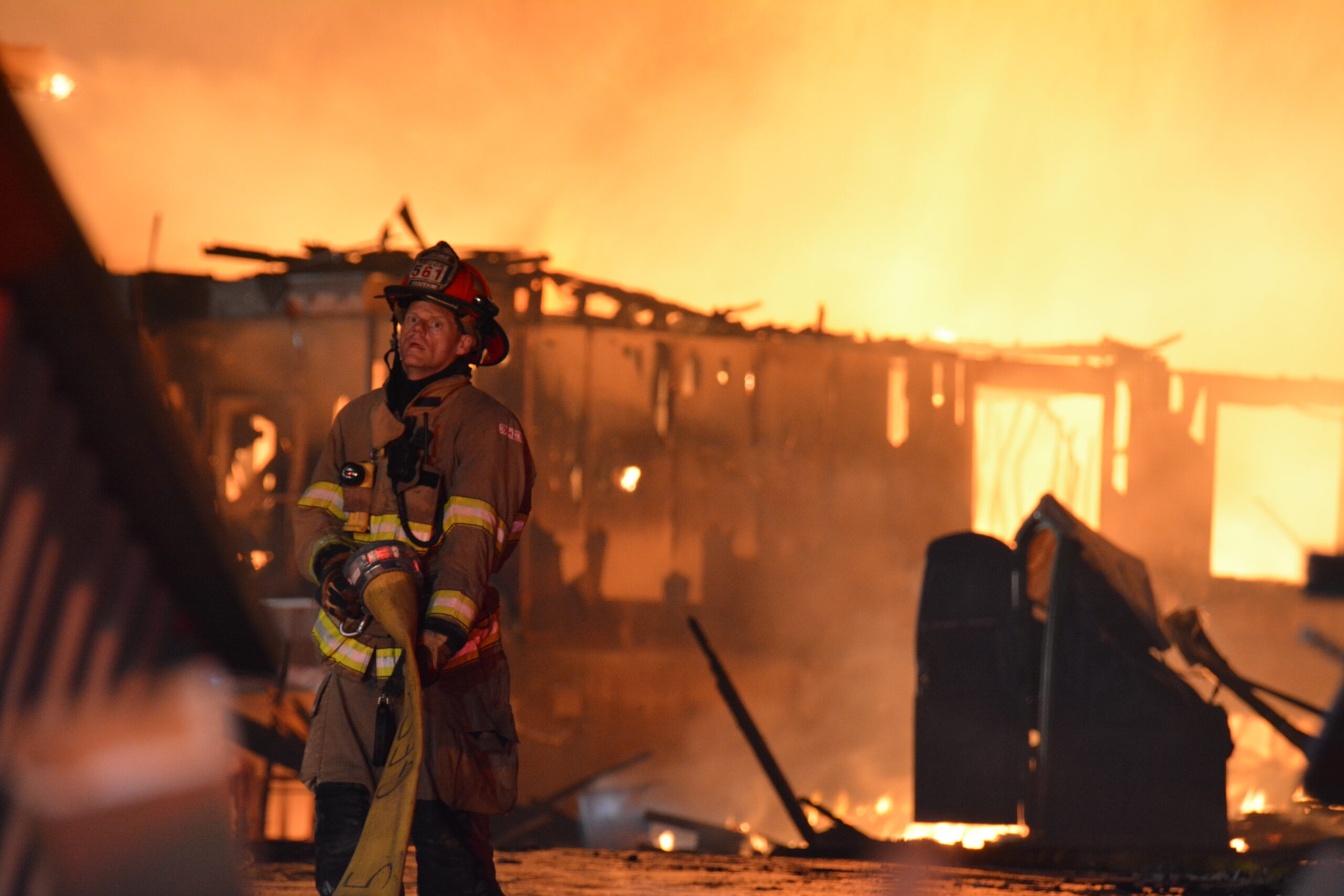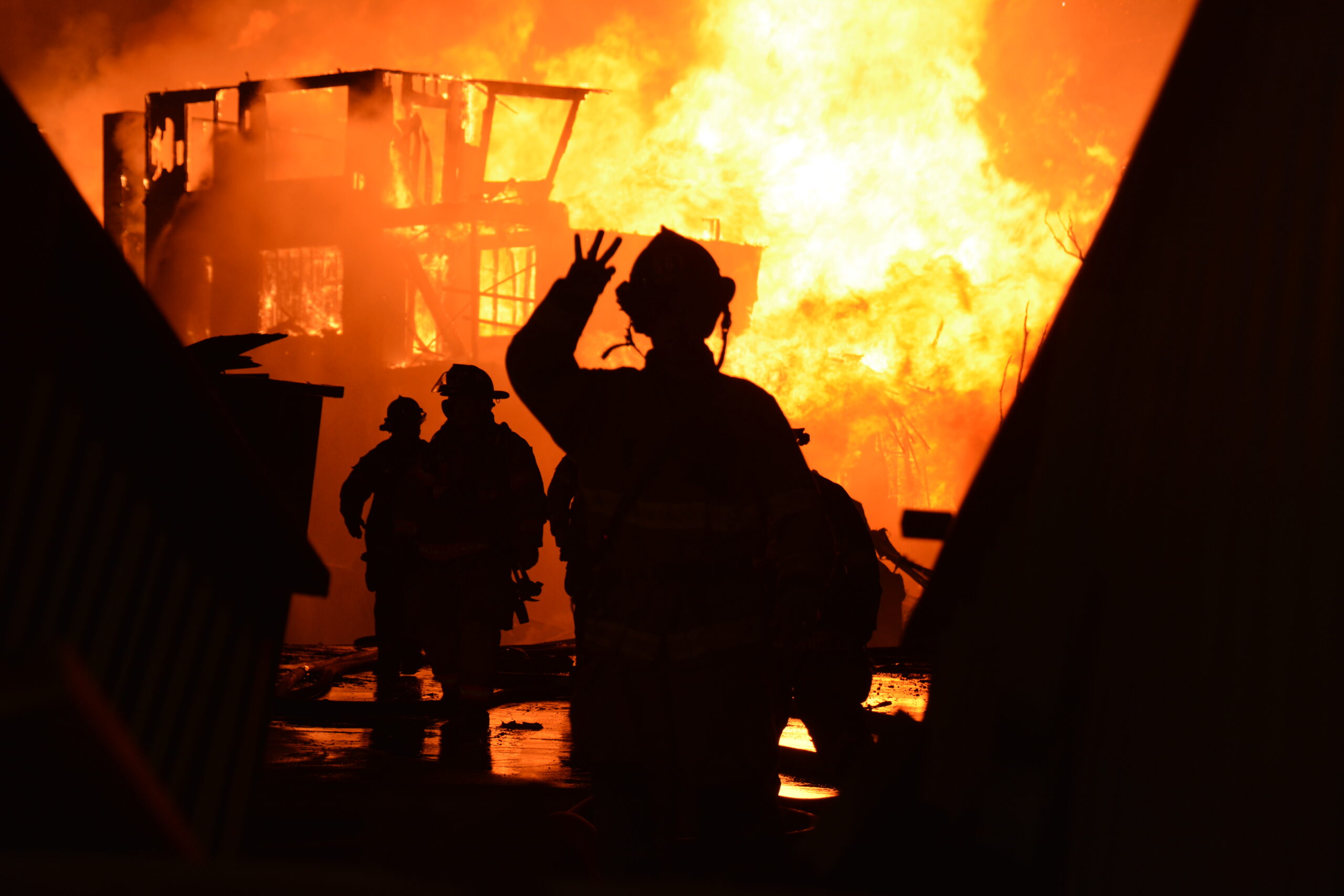Mental Health: Take Care of Your Active Duty, but Don’t Forget About Your Retirees
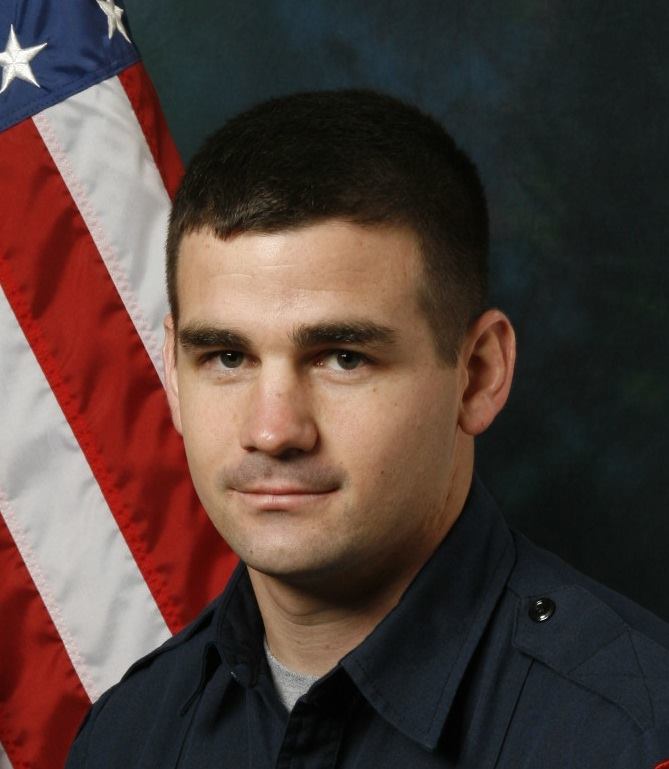 The Day Everything Changed
The Day Everything Changed
This one isn’t easy for me to share because it’s my story.
July 16, 2016. Just another hot Saturday in Texas. I was B-shift Battalion Chief and the dive team coordinator for the Grapevine Fire Department. My family and I were driving home from my oldest son’s club basketball game when my phone buzzed: a drowning on Grapevine Lake. I pulled up the radio app we used so I could listen and decide whether to respond after dropping my family at home. Within minutes it was clear the victim was one of our own, James McKenzie. I pressed the accelerator, and my wife gently warned me not to cause an accident.
When I arrived on scene I checked in with command and started monitoring the operation. It was tense, but everyone was following the book: last-seen point marked, sonar scanning, diver in the water searching. The diver and the tender on shore kept complaining about the tether rope, the line we use for communication, kept catching on something. That’s common as it usually snags on a rock or a stump. We decided to pull the diver in and reset. As the diver swam back and the tender hauled in the rope, they both remarked on how heavy the tether rope felt. I was standing on the shore above a steep drop-off when the diver reached me, about three feet below. We were discussing our next move when he said quietly, “I think I’m standing on him.” While the diver was swimming his pattern, James had become entangled in the tether rope. I told the diver, “Reach down and see what you’re standing on.” He said, “It’s him.” Another firefighter was nearby. I calmy called to him, “We have James.” The three of us pulled James’s lifeless body from the water.
James wasn’t just a teammate. He was a strong young firefighter, a member of the dive team, a talented member of our public education team, and a man of deep faith. My oldest son had even taken his recreational dive certification course alongside James, so we’d spent a lot of weekends together. Our department was unfortunate to have faced several off-duty tragedies like this over the years: multiple cancer deaths, a suicide, a vehicle accident, and a member murdered. All these deaths stung, but like so many of us in Public Safety, I did what we are trained to do after these instances and I carried on.
Fast Forward to Retirement
April 2023. I retired and started working for Front Line Mobile Health, excited for a new challenge. The first year flew by. I was everywhere from Colorado, Georgia, Pennsylvania, New Jersey, and Tennessee. Our new executive team took a business-planning trip to Guatemala. My wife and I, along with one of my closest fire department friends and his wife, went to Peru and hiked to Machu Picchu. It was fun, fast-paced, and honestly, exciting. I didn’t slow down until January of 2025.
At first, it was subtle. I would think about James’ death occasionally. A few mornings each week I woke up uneasy and nauseated. I couldn’t eat until noon. The symptoms came and went, and because I was still exercising and staying active, I brushed them off. At Front Line we’re fortunate everyone is encouraged to take our own physical. I did. Everything looked fine so I kept going.
By April of this year, the symptoms were daily and something bigger had emerged. James’s death started replaying in my mind on a more frequent basis, not just a fleeting thought anymore. At first it was two or three times a day, then so often I lost count. I was still walking or running every day, but I stopped lifting weights. I felt drained. I kept up with my work duties, but each day became a battle.
Finally Asking for Help
My wife new about my physical symptoms, but I finally told her about replaying James’ death and told her I needed to figure this out. My first call was to Erika from The Readiness Group. Back at Grapevine, when we built our first peer support team, Erika and I had formed a strong bond. We also shared the fact that her husband was an U.S. Air Force pilot and my son was just starting his pilot training for the Air Force. I told her everything. We agreed I needed to tackle both the mental and physical sides. To look at things physically, I went to Carencia, a group Erika trusted. Lab work showed high cortisol and low omega levels. I started supplements for the omega levels right away. To address the mental side, I went to see Kim at Forged In Valor. She dove right in. We reviewed the science of trauma, EMDR, and she gave me coping tools to start using. We started EMDR therapy on my first visit. I’ll admit, I always thought EMDR sounded like voodoo science. However, after trying it, my experience has been that it is a real treatment. There is strong neuroscience data supporting its use. I know it does not work for everyone in every situation. It is a tool in the therapist’s tool belt. I still have sessions scheduled to work on my anxiety and coping skills. I am not healed yet, but I am on my way to feeling better.
What I Know and Learned
- The mind and body are connected. Chronic cortisol surges ramp up your heart rate and blood pressure, slow digestion, suppress your immune system, and can cause abnormally high levels of glucose. These effects linger long after the stressor is gone. Mental health is physical health.
- First Responders are at high risk. Most people in the general population may face one or two significant traumas in a lifetime. Public Safety professionals experience hundreds of traumatic events over the course of their career.
- Most active-duty first responders now have resources. Departments now recognize how serious mental health issues are and support their personnel while they are on the job.
- The effects of trauma don’t follow a schedule. Once you hang up the badge, the effects of trauma do not go away. I have no idea why James’ death was the call that got stuck and came back years later. No one is immune no matter how tough you think you are.
My Takeaway
Trauma can resurface once you retire or leave the world of Public Safety. In my case it resurfaced years later once my life slowed down. If my story does anything, I hope it reminds you to care for your mental health as much as your physical health. Chiefs, please check in on those who have served in your departments and retired. Please consider offering post-retirement mental health support if you do not already.
At Front Line we have mental health resources and referral networks ready. We are here to support not only your physical health needs but your mental health needs as well. We owe it to each other. We owe it to ourselves.
John Sherwood
Chief of Staff – Front Line Mobile Health
Former Assistant Fire Chief – Grapevine Fire Department

